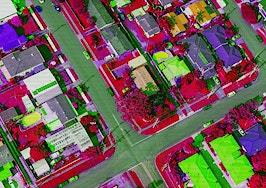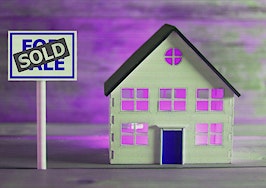Even as the economy plunges and states struggle to get the coronavirus outbreak under control, experts warn of another crisis on the horizon: mass, nationwide evictions.
When the pandemic was first declared in March, both the federal government and individual states put in place temporary bans on mass evictions. And while the initial ban protects tenants who lost their income from eviction, the protections are in the process of expiring. Federally enforced protections against evicting those who live in assisted properties expires July 25 while similar moratoriums in New York (a new bill extended protections in certain cases of financial hardship) and Colorado have already been lifted.
But with unemployment still at 11.1 percent, many in the housing industry have been concerned of a crisis in which millions of people could be evicted from their homes. According to CNBC, almost half of renters between the ages of 18 to 64 reported having trouble making their rent payments between March 25 and April 10. The protections have also not affected piling-up rent (those who lost their jobs will still have to pay it eventually) while a federal $600-per-week aid package for those unemployed due to the pandemic is also set to expire in July.
“A lot of people could be on the streets,” Aaron Carr, founder and executive director of the Housing Rights Initiative, told CNBC. “Especially in places like New York City that already have a homeless problem, it could turn into a homeless nightmare.”

Richard Rubin
As infection cases in states like Florida and Texas surge, evictions could force people out onto the streets or in into cramped homes with other family members. Along with pushing people into poverty and financial holes that are even more difficult to get out of, widespread evictions could also exacerbate the ongoing health crisis.
Richard Rubin, the founder of affordable housing company Repvblik, said that the eviction crisis will also hit commercial real estate. Even as economies open up, the coronavirus crisis has made people more hesitant to visit shopping malls and movies theaters. After seeing employees work from home fairly efficiently for the last four months, companies across the country are also choosing to cut down on office space and let more employees continue to work remotely.
“It’s happening in all segments of real estate at the moment,” Rubin told Inman. “[…] People have figured out how to operate with a lower form of revenue but they haven’t worked on how to operate with no revenue.”
The best solution, according to Rubin, is to turn start turning unused or abandoned commercial space into affordable housing. Based out of Los Angeles, his company recently converted a Days Inn hotel in Missouri into an affordable housing complex charging residents $200 for the first two months in the hopes of being able to raise prices when the economy opens up and residents get their jobs back. They are currently working on approximately 10 similar projects in places like L.A. and Kansas.
“You’ve got folks that are in distress after dropping down from being at a higher-area median income and then you’ve got some folks transitioning through and living with roommates,” Rubin told Inman. “That is a very large transitional demographic within most developed markets.”
Rubin believes that such a strategy, wherein a developer buys commercial properties that have gone under at a discount and turns them into affordable housing, is one of the only ways to navigate out of the current crisis facing both struggling individuals and the decline of much commercial real estate. Hotels, in particular, are easier to transition since they are already built as mini-suites and often provide easy housing.
“It is very unprecedented to live through all of this but what generally happens in these situations is that we tend to reevaluate things and turn to markets that already exist to find safe and secure places in which to live,” Rubin said.













